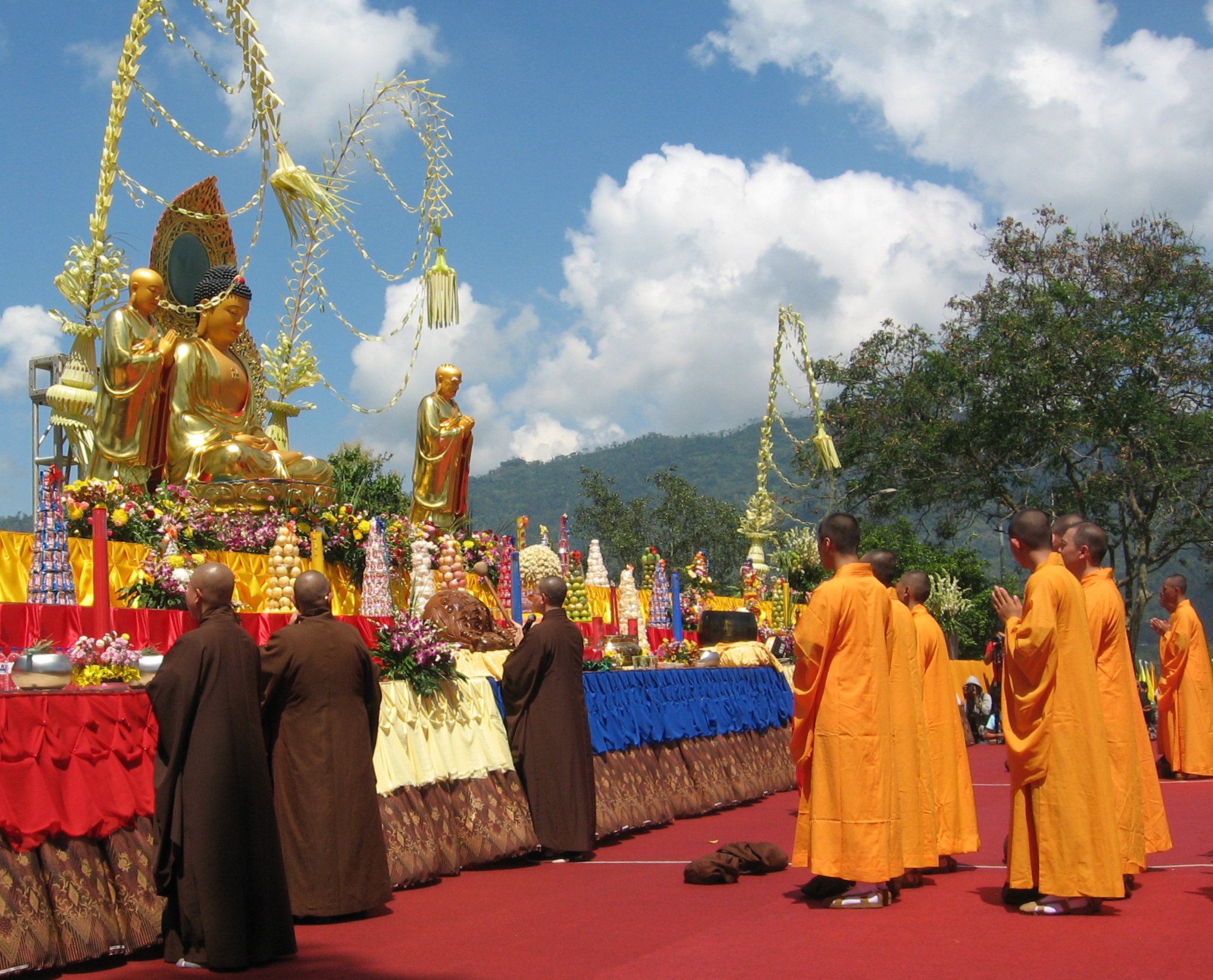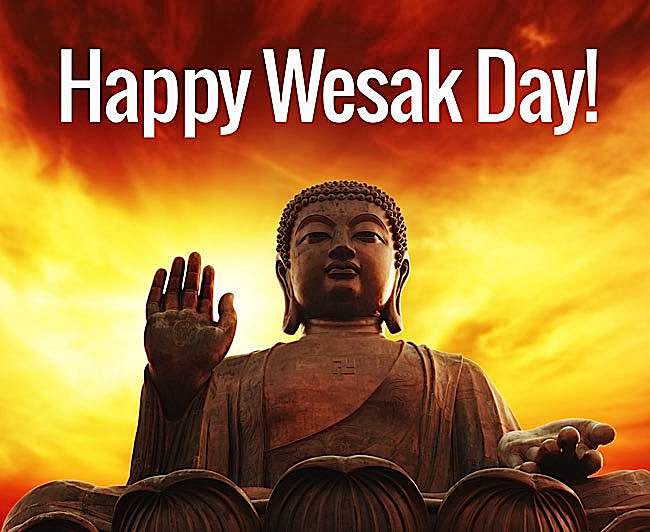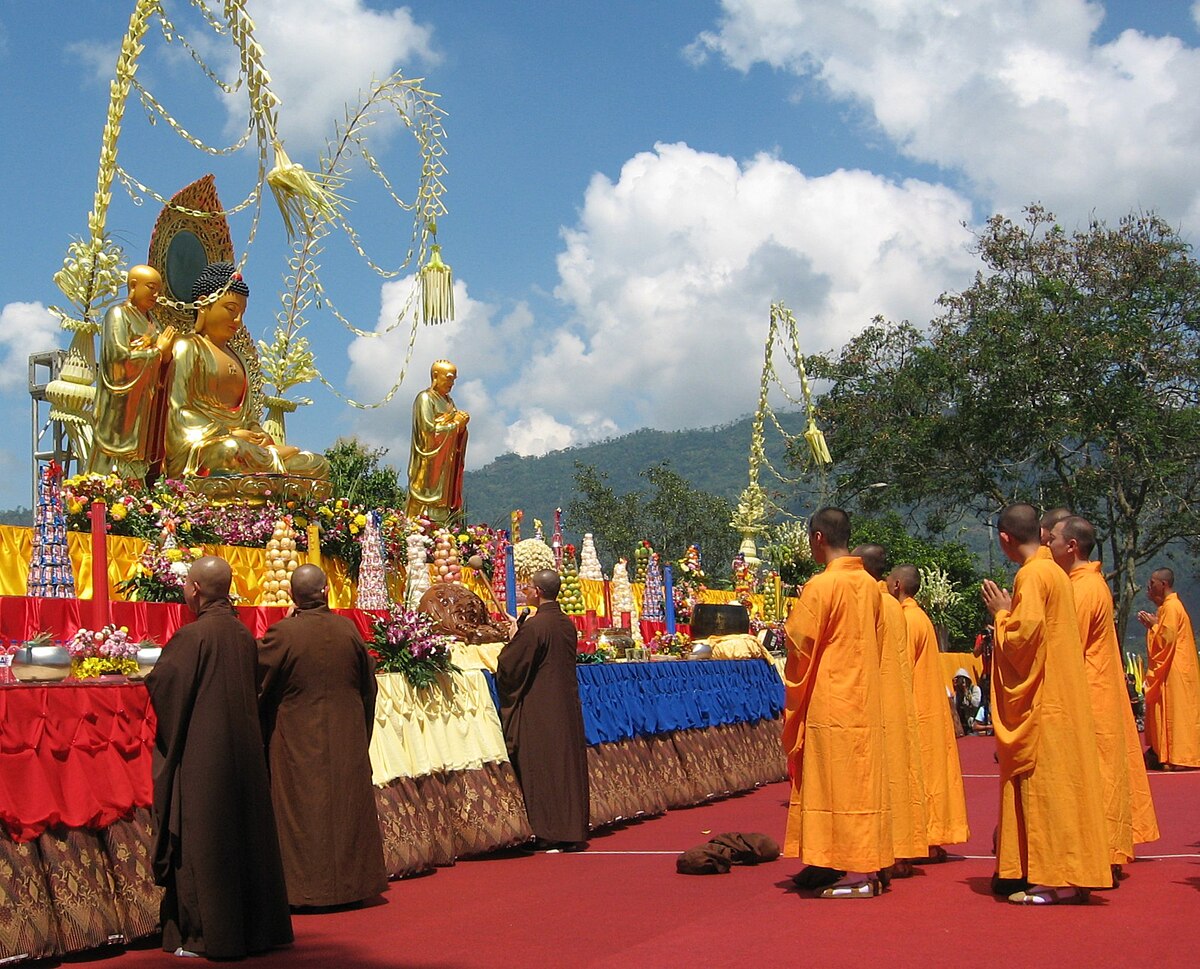
Why Vesak Day Different in Malaysia And Singapore
Vesak Day falls on different days in Malaysia and Singapore due to their diverse cultural calendars. Buddhist communities in both countries celebrate this important religious holiday with various traditions and festivities.
Understanding the reasons for the differing dates can provide insights into the cultural and historical backgrounds of these two nations. This article will explore the unique significance of Vesak Day in Malaysia and Singapore, shedding light on the nuances of how this auspicious occasion is observed in each country.
By delving into the origins and customs surrounding Vesak Day, we can appreciate the rich tapestry of Buddhist heritage in these Southeast Asian nations.
Historical Background
Vesak Day, also known as Buddha Purnima, is a significant religious festival celebrated by Buddhists worldwide. This day holds special meaning as it marks the birth, enlightenment, and death of Siddhartha Gautama, the founder of Buddhism. However, the way Vesak Day is observed can differ from country to country due to various historical influences and cultural practices. Malaysia and Singapore, while sharing similarities, also exhibit unique characteristics in their Vesak Day celebrations, rooted in their historical backgrounds.
Origins In Buddhism
The origins of Vesak Day can be traced back to ancient India, where Siddhartha Gautama, later known as Buddha, lived and attained enlightenment. This auspicious day is a culmination of the key events in his life, including his birth, enlightenment under the Bodhi tree, and his final Nirvana or passing away.
For Buddhists, Vesak Day holds deep spiritual significance, serving as a time for reflection, meditation, and acts of generosity and kindness. It is a day of immense reverence and devotion, emphasizing the teachings of compassion, non-violence, and mindfulness imparted by the Buddha.
Spread To Southeast Asia
As Buddhism spread from its birthplace in India across various parts of Asia, it found its way to Southeast Asian countries like Malaysia and Singapore. With the migration of people and the exchange of cultural practices, Buddhism took root in these regions, bringing with it the traditions and customs associated with Vesak Day.
Over time, the observance of Vesak Day in Malaysia and Singapore has integrated local customs and rituals, creating a distinct blend of traditions that sets these celebrations apart. These adaptations reflect the cultural diversity and historical evolution of Buddhism in these countries, shaping the unique ways in which Vesak Day is honored.

Credit: buddhaweekly.com
Significance Of Vesak Day
Vesak Day holds great significance in both Malaysia and Singapore, but there are some differences in how it is celebrated.
Celebrating The Birth, Enlightenment, Death Of Buddha
Reflection On Buddhist Teachings
Vesak Day, celebrated in both Malaysia and Singapore, holds immense significance in the Buddhist calendar. Vesak Day commemorates the birth, enlightenment, and death of Buddha. Celebrating the birth of Buddha, Vesak Day emphasizes compassion and joy. Reflection on Buddhist teachings inspires mindfulness and spiritual growth. Throughout Malaysia and Singapore, devotees gather to offer prayers and meditate.
Vesak Day serves as a reminder of Buddha’s teachings on peace and enlightenment. Observing the birth, enlightenment, and death of Buddha fosters gratitude and introspection. Buddhist communities come together to honor the values of compassion and wisdom. The essence of Vesak Day lies in the profound teachings of peace and harmony.
Vesak Day Celebrations In Malaysia
Malaysia’s Vesak Day celebrations honor the birth, enlightenment, and passing of Buddha with unique traditions.
Traditional Practices
Malaysian Buddhists celebrate Vesak by giving alms to the needy and participating in prayer sessions.
Visiting Temples And Pagodas
During Vesak Day, devotees flock to temples and pagodas to offer prayers and light incense.
Cultural Performances And Processions
Cultural performances like dances and music add color to the Vesak celebrations in Malaysia.

Credit: en.wikipedia.org
Vesak Day Celebrations In Singapore
Vesak Day celebrations in Singapore and Malaysia have unique cultural differences. In Singapore, the day is marked by serene temple visits, candle-light processions, and offering of food to the less fortunate, whereas in Malaysia, it is celebrated with parades and colorful processions.
The distinctions in traditions reflect the diverse ways in which Buddhist communities embrace Vesak Day in both countries.
Religious Observances
Vesak Day, also known as Buddha Purnima, is a significant day for Buddhists in Singapore. They commemorate the birth, enlightenment, and death of Lord Buddha on this auspicious day. Devotees flock to temples to participate in various religious activities such as offering prayers, chanting scriptures, and making offerings to the Triple Gem.
Public Displays And Events
During Vesak Day, Singapore becomes adorned with vibrant decorations and colorful lights, creating a festive atmosphere. The famous Vesak Day procession, organized by various temples and Buddhist organizations, parades through the streets of Singapore. The procession features colorful floats, traditional dance performances, and religious displays, captivating the attention of locals and tourists alike.
Community Involvement
Community engagement is a key aspect of Vesak Day celebrations in Singapore. Volunteers actively participate in providing free food, drinks, and other necessities to the less fortunate. Additionally, various Buddhist organizations conduct charity drives and blood donation campaigns, promoting kindness and compassion in the community.
Cultural Influences And Differences
Examine the cultural influences leading to the differences in the celebration of Vesak Day in Malaysia and Singapore. Discover why these two neighboring countries have unique ways of honoring this significant Buddhist festival, reflecting their distinct cultural backgrounds. Explore how historical, social, and religious factors contribute to the diversity of Vesak Day observances in Malaysia and Singapore.
Indigenous Customs And Traditions
Indigenous customs and traditions play a significant role in shaping the unique celebration of Vesak Day in Malaysia and Singapore. In Malaysia, the influence of the indigenous Malay culture adds a distinct flavor to the festivities. The Malays have their own customs and beliefs that are intertwined with Buddhism practices during Vesak Day. On the other hand, Singapore’s celebration of Vesak Day is greatly influenced by the Indian community. The vibrant Indian culture brings bright colors, lively music, and energetic processions to the celebrations.
Multicultural Influence On Festivities
The multicultural diversity of both Malaysia and Singapore further enriches the observance of Vesak Day. In Malaysia, the festivities are a melting pot of various cultures, including Malay, Chinese, Indian, and indigenous customs. This aspect creates a unique blend of rituals, decorations, and delicious traditional food during the celebrations.
In Singapore, Vesak Day celebrations showcase the multicultural harmony of the city-state. The Buddhist temple in Singapore’s Chinatown is adorned with traditional Chinese lanterns, while the nearby Indian temples illuminate with intricate oil lamps, reflecting the diversity of the local community.

Credit: www.officeholidays.com
Frequently Asked Questions For Why Vesak Day Different In Malaysia And Singapore
Why Is Vesak Day Celebrated In Malaysia And Singapore?
Vesak Day is celebrated in Malaysia and Singapore to commemorate the birth, enlightenment, and death of Buddha. It serves as a religious and cultural holiday for Buddhists in both countries, promoting peace, harmony, and the teachings of Buddha.
How Is Vesak Day Celebrated In Malaysia And Singapore?
Vesak Day celebrations in Malaysia and Singapore usually include religious ceremonies, offerings, and processions. Buddhists visit temples to meditate, make merit, and participate in rituals. In Singapore, a grand procession featuring floats and cultural performances takes place, while in Malaysia, Buddhists engage in charity work and release caged animals as acts of compassion.
Are There Any Differences In How Vesak Day Is Celebrated Between Malaysia And Singapore?
Although the essence of Vesak Day celebrations remains the same, there may be slight differences between Malaysia and Singapore. These differences can include variations in cultural practices, specific rituals performed, and the scale of public events. However, the overall purpose of honoring Buddha’s teachings and promoting harmony is the common thread that binds these celebrations.
Conclusion
The differences in how Vesak Day is observed in Malaysia and Singapore reflect the diverse cultural and religious practices of each country. Understanding these variations helps to promote mutual respect and appreciation for the traditions and beliefs of others. It’s important for both locals and visitors to recognize and celebrate these differences, fostering a sense of unity and cultural understanding.




